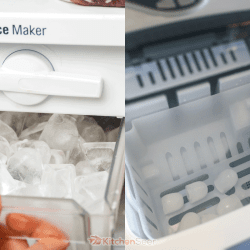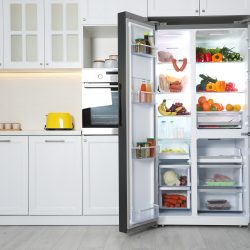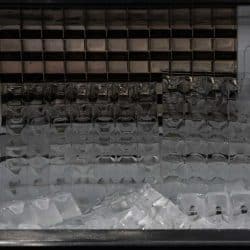Drinks are more refreshing when you add a few ice cubes to them. There are a few ways you can make ice, but if you want it on the go, portable ice makers are one way to do it. Do they use Freon? If that's your concern, let's discuss the details.
Portable ice makers are not too different from their freezer counterparts. They use refrigerant to reach freezing temperatures. Freon is a brand name that offers a broad range of refrigerant solutions for equipment. Therefore, portable ice makers may use a Freon refrigerant.
Portable ice makers aren't magic. They work similarly to your refrigerator ice makers. More specifically, they all use some type of refrigerant. Some manufacturers may use refrigerant from the Freon brand. If you'd like to learn more about this topic, keep reading.
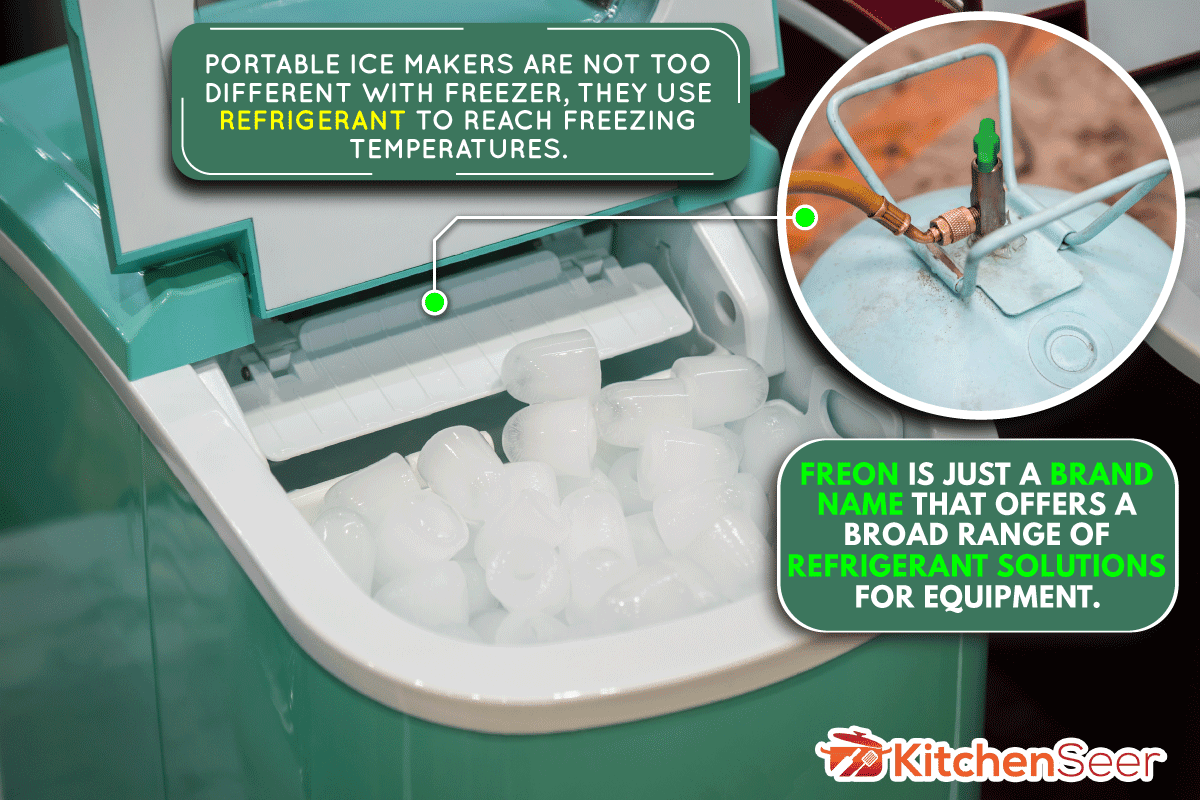
Ice Makers And Freon
Before we get into the specifics, we need to break down how ice makers work piece by piece. This way, we can get a better understanding of the situation. Let's start by covering the way an ice maker works.
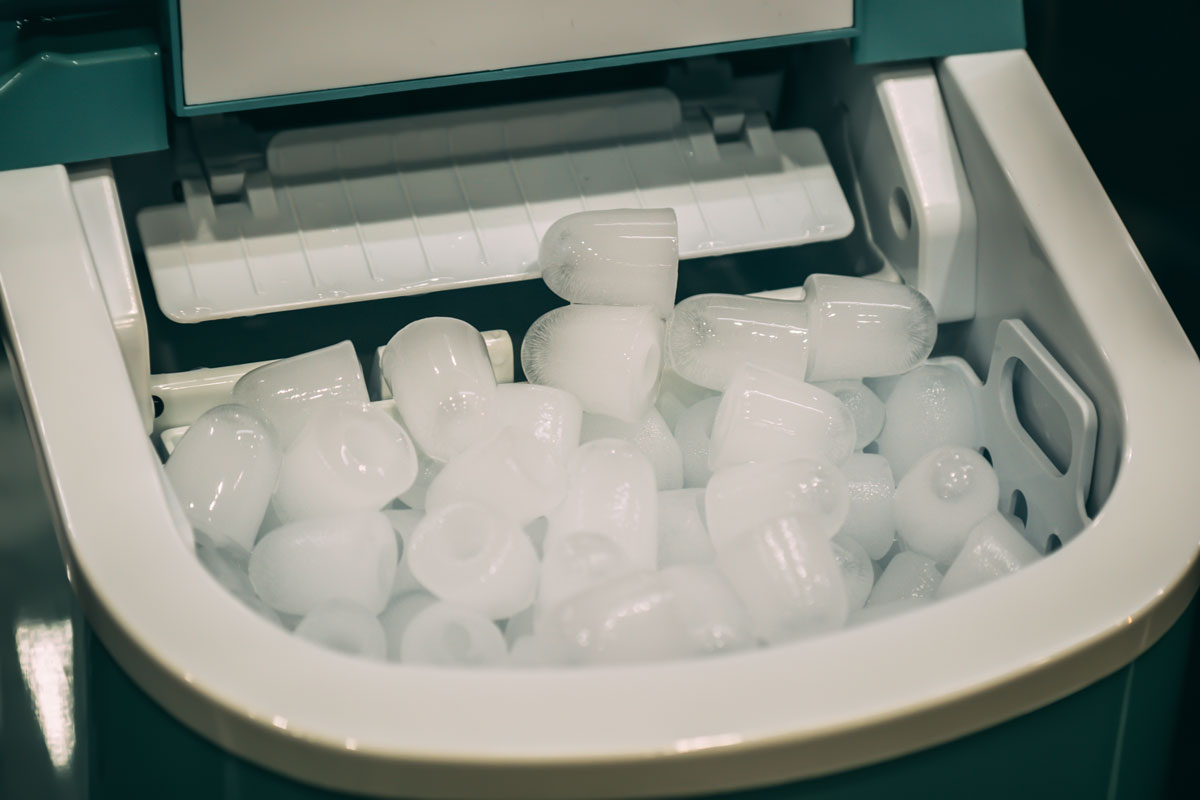
How Does An Ice Maker Work?
It doesn't take much to create ice. You need freezing temperatures, water, and an ice mold. An ice maker requires an internal temperature of 0-10 degrees Fahrenheit to function efficiently.
So, how does an ice maker reach this temperature? It requires the help of a system that uses refrigerant. However, it produces ice differently than a standard refrigerator ice maker.
Instead of relying on the cold to produce ice in a mold, it uses prongs. Those prongs get cold enough to form ice after a few minutes of contact. The longer the machine submerges the prongs in the water, the bigger the ice cubes.
Once the ice reaches a certain size, the prongs will heat up. It will only get hot enough to let the ice cubes slide off. There's another sensor on the basket that holds the ice. It keeps track of the amount of ice the machine makes. Once the basket is nearly full, it will shut off the ice maker.
The Refrigeration Cycle
The prongs work by using some of the same parts you would find in a refrigerator. It has a compressor, condenser, evaporator, and expansion water valve. These components use a refrigerant to produce temperatures that make an ice maker work.
It starts through the compressor. The compressor will compress the coolant. As a result, it becomes a hot, high-pressure gas.
Then comes the condenser. As the name implies, it condenses the refrigerant. The refrigerant enters the condenser as a hot pressurized gas. It cools down and converts into a liquid state here.
An evaporator is in charge of absorbing heat inside the machine. Refrigerant moves at a slower pace in this area. As the evaporator absorbs heat, the refrigerant becomes hotter.
As a result, it turns into a gas once again. Once the refrigerant is in its hot, gaseous form, it travels back to the compressor.
How It Works In A Portable Ice Maker
Now we have a basic understanding of the refrigeration process. It's time to look at what a portable ice maker does differently. The difference in the process comes at the evaporator stage.
As mentioned, the refrigerant enters the evaporator in a cold state. In a refrigerator, it would draw heat away from the contents inside. It does this as the refrigerant is vaporizing.
The cold from the refrigerant is spread around by a fan. However, we don't want to do that in a portable ice maker. Instead, the cold is concentrated in the prongs.
Once the machine lowers the prongs into the water, it forms ice.
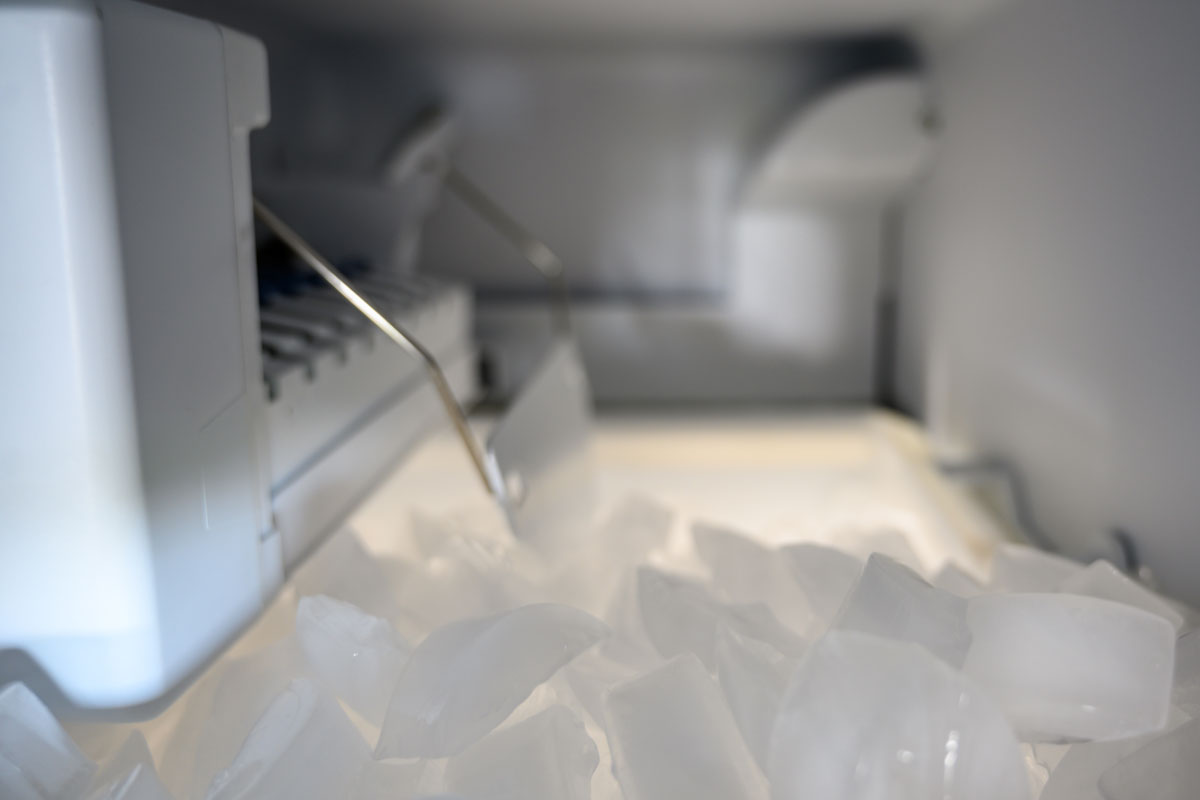
What Refrigerant Does An Ice Maker Use?
The answer is clear to us now. Portable ice makers use a refrigerant to produce ice cubes. But do they use Freon?
Technically, it's a maybe. The answer to this question is somewhat complicated. Freon is a brand name. To get an accurate answer, you'd need to know the specific refrigerant your portable ice maker uses.
Freon is a trademark of the Chemours company. They offer a wide range of refrigerant solutions for refrigeration and air conditioning equipment. However, they're not the only manufacturers.
Honeywell International, Arkema, and MexiChem also produce refrigerants. The ice maker industry uses R134a, R404A, and R410A refrigerants.
Honeywell, Chemours, and Arkema are the three big players in this industry. Thus, the refrigerant in your portable ice maker could be from the Freon brand. But, it could also be from a Honeywell or Arkema manufacturer.
Summing It Up
The information above might be a lot to take in. So, let's summarize it. Portable ice makers use similar components to the one in your freezer. However, they work a little differently.
Nevertheless, they all have the common factor of using a refrigerant gas to achieve cold temperatures. The ice-making industry uses R134A, R404A, and R410A in their machines.
The three big players in the refrigerant industry are Honeywell, Chemours (Freon brand), and Arkema. They all produce the refrigerant that an ice maker would use. Therefore, it could be using refrigerant under the Freon brand.
Why Is My Ice Melting In My Portable Ice Maker?
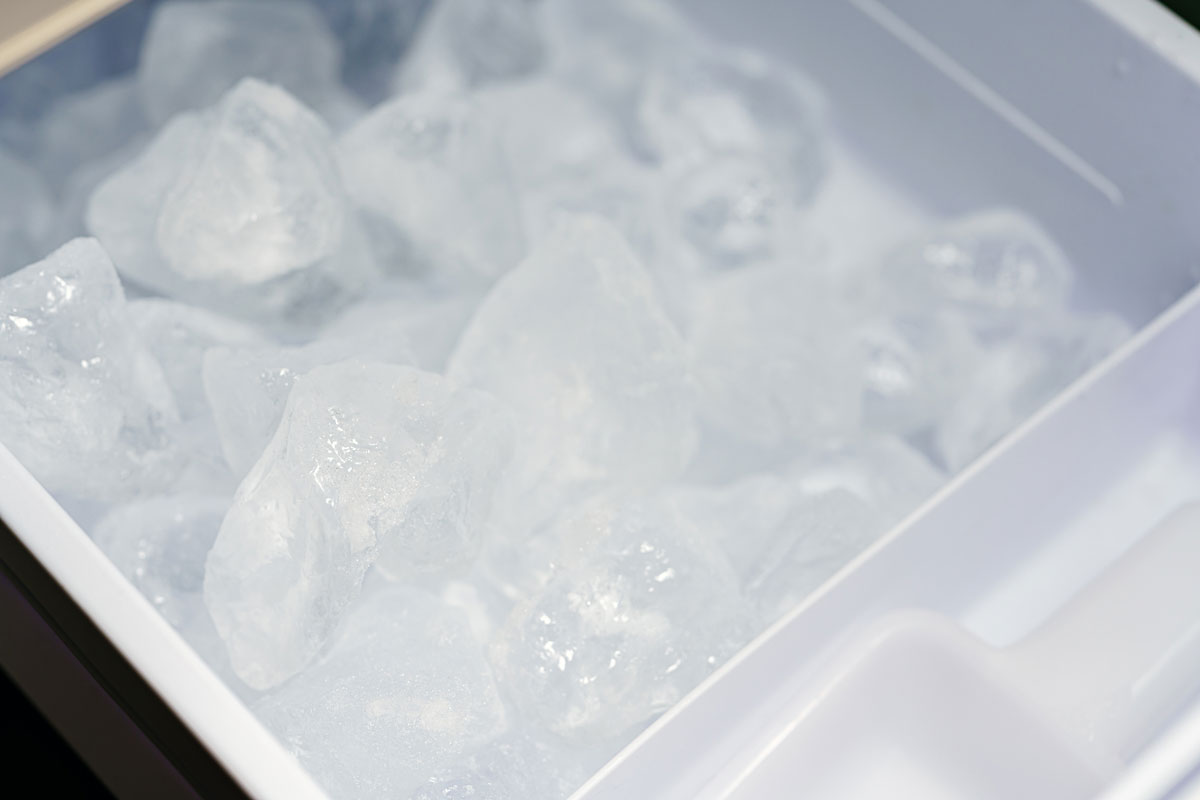
Portable ice makers are a convenient way to produce ice cubes anywhere in your home. All you have to do is fill it with water. Then, let the machine work its magic.
However, some may find the ice cubes melting much faster than they can use them. Why is that? After all, if the interior gets cold enough to produce ice, it should be cool enough to keep it that way.
Unfortunately, that's not the case. Most portable ice makers don't have adequate insulation to keep temperatures low enough to keep the ice solid. Thus, it will gradually turn into water again.
The water will travel to the water reservoir at the bottom. To maintain the ice cubes, put them in a freezer bag. Then, store it in a cooler. Otherwise, look for a portable ice maker that stores the ice cubes for longer.
Why Is My Portable Ice Maker Not Freezing?
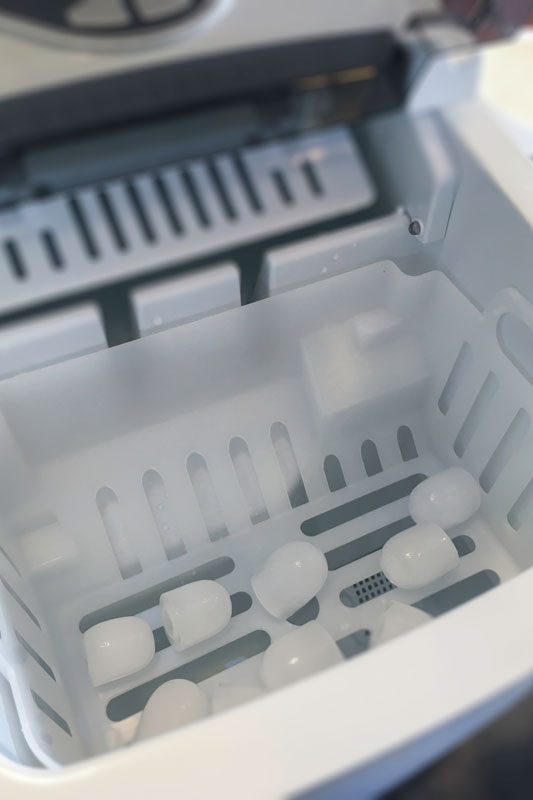
If your portable ice maker struggles to make ice, troubleshoot the problem. Start by checking the power source. More specifically, check the power cord.
Make sure it's plugged in completely. Additionally, inspect the cord for any fraying or loose connections. You may be able to replace it if it is damaged.
Once you make sure the cord isn't the culprit, check the power outlet. Plug the machine into another outlet and see if that works.
Water Level
If it's not a power issue, check the water level next. Ice makers will shut off if there's too much or too little water in the reservoir. So, empty the machine and refill it to the water line indicated in the tank.
Turn the machine on and see if that works. If it doesn't, it's time to look at the water filter.
Water Filter
Start by checking the ice maker user's manual. More specifically, look for the page that shows where you can find the water filter. It may need cleaning.
Many areas of the US have hard water. Hard water carries more minerals. It's a problem because it will leave mineral deposits. As a result, it causes clogging issues.
You can clean the filters by submersing them in white vinegar. Then, use a toothbrush to scrub away the minerals. Rinse the filters clean, and try using the ice maker once again.
Temperature
Portable ice makers are plenty powerful. But, they have their limits. Ambient temperature or the water itself can affect the machine.
Ice makers work best if you use room temperature or cold water. If the water is hot, the ice maker will cool it down instead of making ice.
Likewise, ambient temperature also needs to be reasonable. The ideal ambient temperature is around 50 to 80 degrees Fahrenheit. If it's hotter, the machine will struggle.
Leaks
Lastly, check the entire ice maker for cracks or chips. Water could be leaking from the machine. Therefore, it's also a good idea to inspect under it for puddles of water.
In the worst case, it could be a refrigerant leak. It's one of the least likely cases. But, if you find nothing wrong elsewhere, give a technician a call. This way, you can confirm if the machine is leaking refrigerant.
In Closing
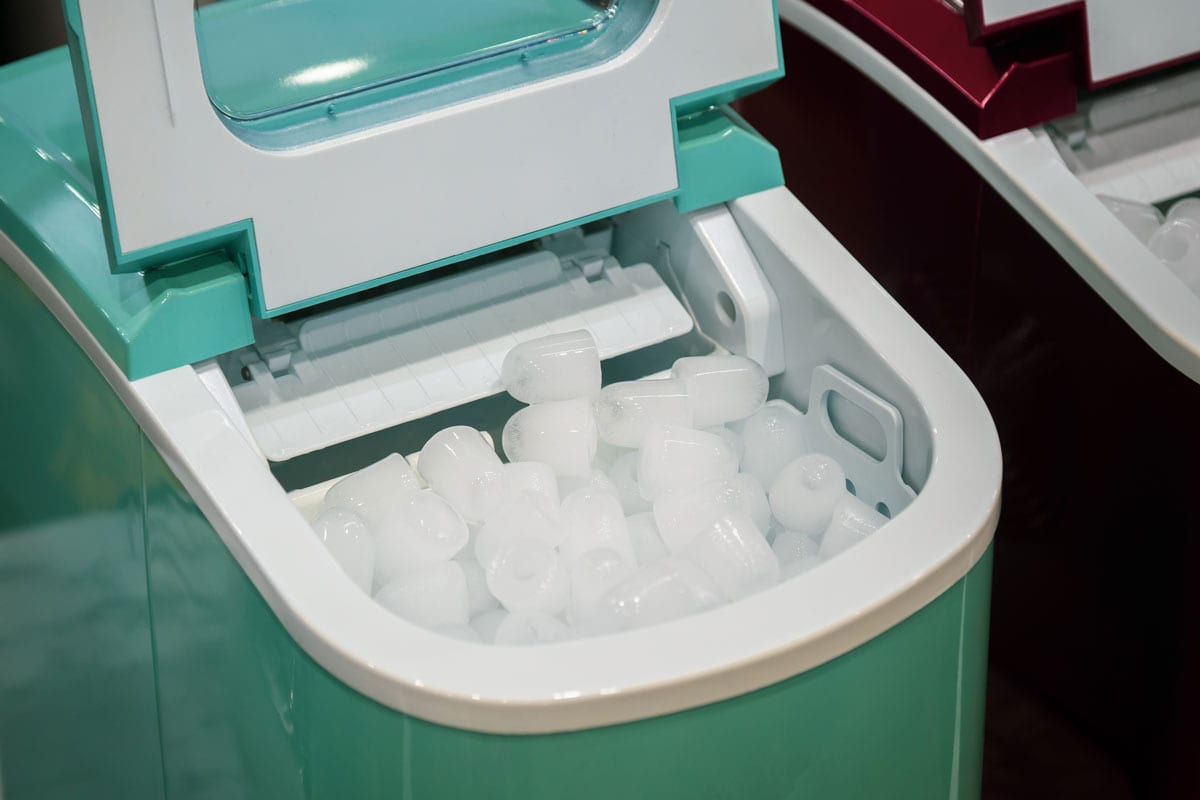
Machines make most parts of our life more convenient. How they work is not a mystery. There's a scientific way they go about producing things we want. As we've found, ice makers use refrigerant. In particular, they might use Freon.
Before you go, do you have other ice maker concerns? Do you need help cleaning one? To learn more, check out:
How To Clean A Portable Countertop Ice Maker
Do you own a Frigidaire countertop ice maker? If you need help troubleshooting one, check out:
Frigidaire Countertop Ice Maker Troubleshooting Guide

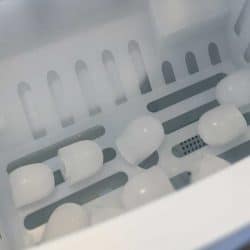
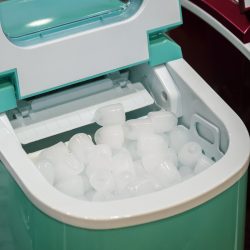
![close up photo of a portable-mini-ice-cube-maker many ice cubes green colored ice maker portable, Should You Turn Off Your Portable Ice Maker [Or Can You Leave It On All The Time]?](https://kitchenseer.com/wp-content/uploads/2022/09/close-up-photo-of-a-portable-mini-ice-cube-maker-many-ice-cubes-green-colored-ice-maker-portable-250x250.jpg)
